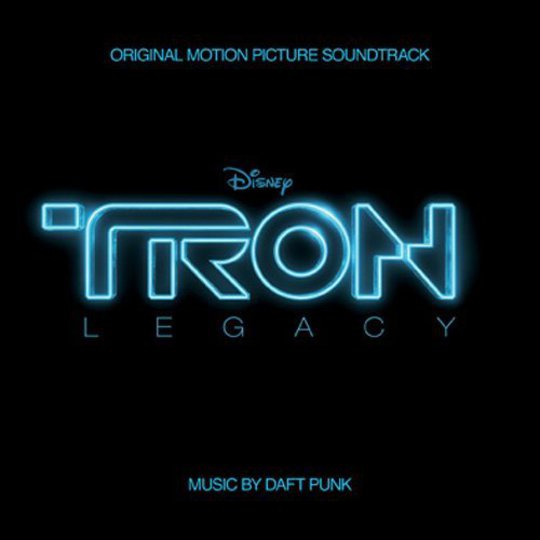I’ve been thinking: are Daft Punk the most universally adored dance act of the modern age? Whereas peers like The Prodigy and The Chemical Brothers are more than happy to play anywhere with a big enough field and accessible glowstick warehouse, there has always been something ephemeral about Daft Punk that set them apart from the herd. The legend, the myth, the robot personas, the ability to reach across the divided tribes to make rock fans, indie kids, dance heads and casuals salivate at the very mention of their name. In keeping a fleeting sense of unattainability, they have maintained their aura in a world where dance acts sprout and die in the span of a season. Yet their recording career is curiously unbalanced. Few with correctly aligned ears and a handful of brain cells would deny that 1997’s debut Homework is anything besides a classic call-to-arms for a genre which had sat apathetically scratching its head since Acid House. And though its heart of melting, shimmering synth-pop initially polarised opinion, 2001’s Discovery has grown pleasantly into its own skin over the years. 2005’s Human After All however, was horribly misconceived. An aimless, wandering and vacuous collection of half-conceived loops and cyclical motifs, it lacked any notion of warmth, heart or soul.
Five years later, they return from the mist. Tron: Legacy is, of course, the soundtrack to this December’s sequel to 1982’s sci-fi classic. As such, these tracks should realistically be impossible to appraise without the benefit of the cinematic action they will accompany. But the highest compliment that can be paid to the album is that in isolation, it retains a profound musical and emotional spectrum that dazzles and delights throughout. By adapting their sound, scope and personality, Daft Punk defy convention to create a record that is as beautiful as it is intelligent and in doing so, finally come of age as genuine artists. Yes, it is fundamentally a soundtrack and should be appreciated in that light. Even so, its coherence as a standalone body of work is nothing short of breathtaking.
Recorded with an 85 piece orchestra, Thomas Bangalter and Guy-Manuel de Homem-Christo have crafted a record that vibrates with the energies of both past and future tenses. If you’re looking for an album stocked with anthems, you’ll leave disappointed. Tron: Legacy relies on the swell, the build; anticipation for the moment of clarity. For one, the first third of the album consists of compacted vignettes of tension, mostly lasting less than two minutes. And on listening, the main surprise is how much the album eschews immediate gratification in place of slowly unfurling, multi-layered classical ambiences and atmospherics. The second surprise is just how sensitively, cerebrally and touchingly these arrangements are developed and executed: Daft Punk can score and arrange majestically. A case in point is the gorgeously flowering ‘Adagio for Tron’ where the puzzle pieces of strings slide slowly and poignantly together with utter conviction, so much so that you half expect to hear Maria Callas breaking in through the gilded, gliding notes. But within and between the passages of the record, Daft Punk never quite forget their electronic genotype. And this clash of cultures is what makes Tron: Legacy so relevant and engaging. Within the delicate architecture runs a threatening undercurrent of dark chords and uneasy bleeps, the crackles and hisses of static electricity threatening to explode at any second. And when they do flick the red switch, the eventual deployment of their heavy artillery proves a stunning, synapse-prickling delight. This is used to quite astonishing effect on the pairing of ‘End of Line’ and ‘Derezzed’, when you suddenly find yourself wrenched from ambient textures and plunged headlong into a furious, unforgiving maelstrom of electronica, as good as anything they’ve ever created.
It is unnecessary to overanalyse specific tracks because this is a singular entity; a record where each ingredient compliments the other from first to last note. The strength is in numbers; the magic is in the contrast: the bipolar cloud of positive and negative charges. And its eventual denouement is a sheer masterclass of sonic precision and wire-strung tension (though hidden between the closing clatter sits one of the album's principal gemstones: the beautiful, Eno-brushed ‘Arrival’). The final two tracks are a summation of the record's majesty. In beautiful contrast, you have the roaring electro kraken of ‘End Credits’ and the swelling classical wonderment of ‘Finale’. Completely dissimilar; they are separated by 200 years of musical evolution. Yet they manage to sound perfectly mated and matched; brought together in a stunning, luminous juxtaposition.
What Daft Punk have done is to metaphorically cast off the robot masks for the first time and show their unadorned faces to the world. In taking two genres of music: classical and electronica (though electronica can, in effect, be considered the modern progression of classical music in its reliance on motifs, recurrent themes, dynamics and layering) and fusing them into a beautiful, elegant hybrid, they break new, mercurial ground for a mainstream dance act. Granted, we’ve had movie score composers such as Hans Zimmer and Vangelis attempt to meld the two, but never have we had the task so fluently handled by major league artists. In succeeding so immediately, unexpectedly and brilliantly in their goal, they laser-cut the inscription to their greatness in platinum. Tron: Legacy is a remarkable reminder of how electronic music can equal the emotional nuance and resonance of any ballad, torch song or symphonic pop track. Daft Punk have finally proved that after all, they indeed are human. And it is a wondrous, spellbinding epiphany.
-
9David Edwards's Score






















